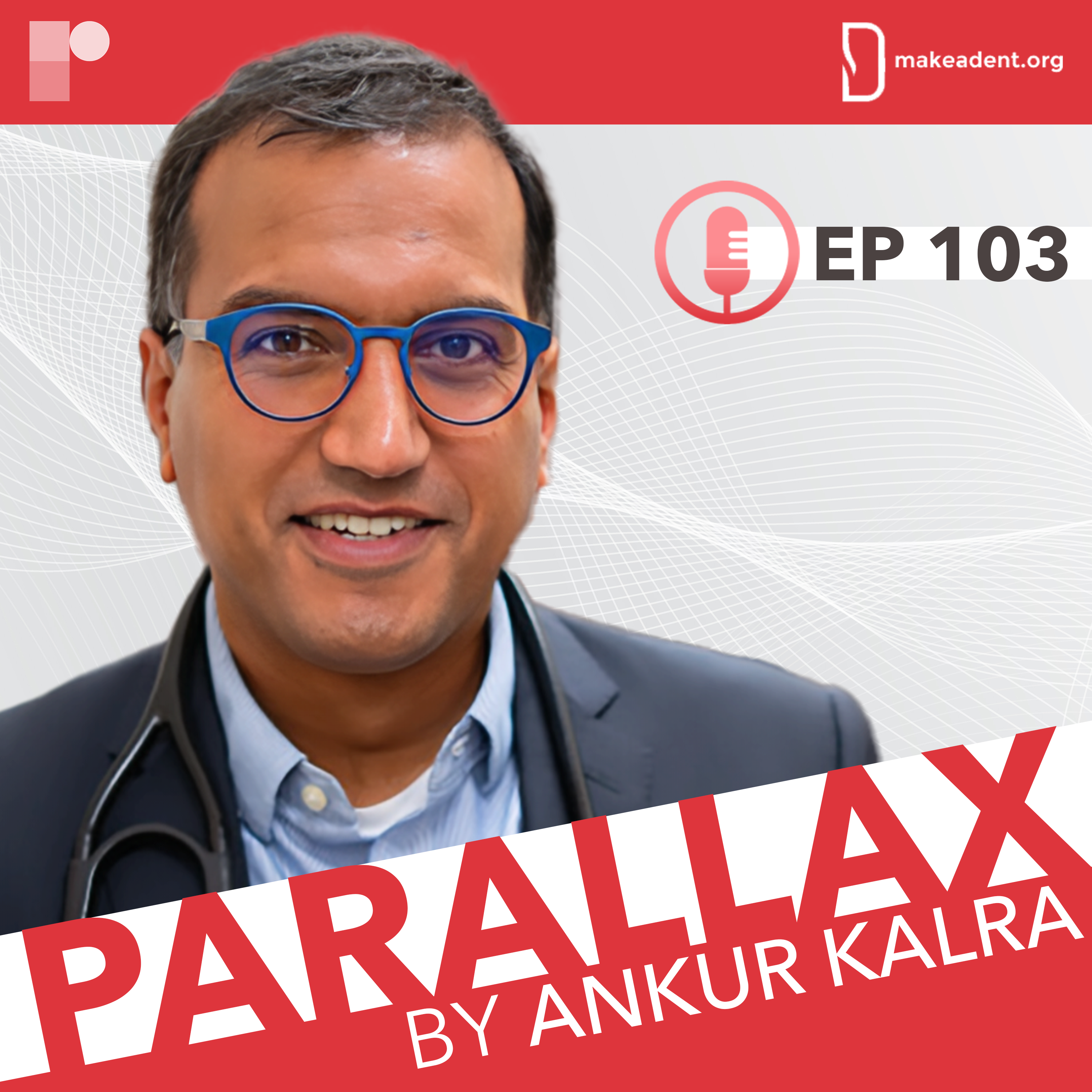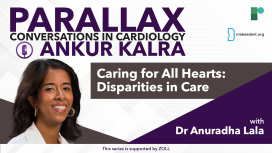
On October 28th, 2023, the Canadian Cardiovascular Society (CCS) released a new classification system for acute atherothrombotic myocardial infarction (MI) based on stages of tissue injury severity (CCS-AMI). This expert consensus is the result of decades of data on acute MI with reperfusion therapy.
Dr Ankur Kalra is joined this week on Parallax by Dr Andreas Kumar, Chairperson of the Writing Group of the Expert Consensus Statement, Associate Professor of Medicine at the Northern Ontario School of Medicine, Cardiologist at Health Sciences North, and President of the Canadian Society of Cardiovascular MRI.
In this informative episode, Dr Kumar shares what led his team and the CCS to introduce a new classification scheme for acute MI. He discusses how research from the past 15 years highlighted the need to incorporate tissue changes resulting from acute myocardial infarction (MI) into clinical practice. Dr Kumar outlines the four stages of CCS-AMI, and we gain insight into how this novel classification scheme could impact bedside medicine.
Dr Kalra asks about treatment optimization based on stages of tissue injury severity. Dr Kumar delves into the risks associated with the four stages, with a particular focus on CCS Stage 4, MI with reperfusion haemorrhage. Finally, Dr Kumar highlights how the use of the classification system can lay the foundation for future research studies and bring us closer to finding answers and identifying agents suitable for different stages of acute MI.
What are the key messages from CCS-AMI? What are the data behind the new scheme? How might the new classification scheme impact the development of new treatment options?
Resources:
Kumar A, et al. The Canadian Cardiovascular Society Classification of Acute Atherothrombotic Myocardial Infarction Based on Stages of Tissue Injury Severity: An Expert Consensus Statement. CJC 2023. https://doi.org/10.1016/j.cjca.2023.09.020
Gaba P & Bhatt DL. Promise of a Novel Classification System for Acute Myocardial Infarction. CJC 202. https://doi.org/10.1016/j.cjca.2023.10.011
Questions and comments can be sent to “podcast@radcliffe-group.com” and may be answered by Ankur in the next episode.
Guest: @AndreasKumarMD Host: @AnkurKalraMD and produced by: @RadcliffeCARDIO.

This series is supported by ZOLL and is intended for Health Care Professionals.


US Cardiology Review journal, has recently seen a 7-fold increase in female editorial board members in response to journal-based strategic initiatives and the stellar work of USC editorial board leadership, Ankur Kalra (Editor in Chief) and Bill Gogas (Deputy Editor in Chief), who were keen to drive this change. With thanks to Dr Anastasia Mihailidou’s tenure as a new board member and her suggested nominees, ten new female board members have recently joined US Cardiology Review’s editorial board.

In this episode, Mike opens up about his childhood in Stilwell, Oklahoma. Ankur and Mike discuss how the inductive quality of art can complement the deductive principles of science. Mike recalls earlier stages of his career and warns about the blinding effect of the ego-driven, competitive culture of cardiology. Ankur asks Mike about fatherhood and about his role as an educator.
What does it mean to be fearless as a medical professional? How can you protect yourself from the emotional toll of the profession? What is Mike’s advice to early career cardiologists?
Sponsored by Edwards.

During her interventional cardiology fellowship, Dr Baron became fascinated by the implementation of novel technologies. She earned her degree in Clinical Epidemiology and spent a year working at the FDA’s Device Evaluation unit.
In 2019 Dr Baron presented the results of her late-breaking trial, COAPT. Ankur invites Suzanne to discuss the economic analysis of the study and to give a short introduction to cost-effectiveness analysis. Suzanne provides an overview of the trial and they talk about the importance of understanding the value and benefits of new devices from both the patient and the health-economic point of viewpoint.

How should you start building a research programme? What are Chuck Simonton’s thoughts on the relationship between doctors and the industry? What is Chuck’s message to young cardiologists?

After the #MedBikini campaign provoked by a misogynistic study that scrutinized female doctors’ social media posts, this episode is about creating a safer environment for female healthcare professionals.





